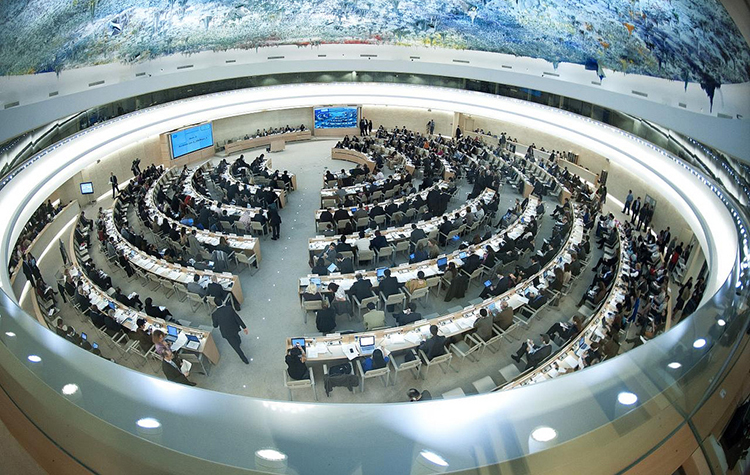44th Regular Session of the UN Human Rights Council
Item 3: Interactive Dialogue with the Working Group on the issue of human rights and transnational corporations and other business enterprises
Oral Statement Delivered by Ahmed Adam
On behalf of the Asian Forum for Human Rights and Development (FORUM-ASIA)
Friday, 10 July 2020
Madam President, FORUM-ASIA welcomes the Working Group’s report and efforts to explore links between corruption and business and human rights violations and abuses.
Corruption remains one of the main factors that facilitate corporate capture of state institutions in Asia, creating conditions that allow persistence of human rights abuses, and attacks on human rights defenders and civil society without any accountability or redress.
The report of the Working Group mirrors findings of FORUM-ASIA, for example, in Mongolia, where alleged corruption by both state and businesses facilitate human rights abuses and environmental degradation.
Policy coherence is rightly identified as a necessary step to prevent human rights abuses and corruption. Yet numerous legislation and policies, proposed or passed during COVID-19 lockdown or to facilitate economic recovery post-COVID-19, prioritise ease of doing business without adequate safeguards to prevent corporate abuses and corruption. These include India’s new environmental impact assessment notification process, proposed in March, and the amendment to Indonesia’s Mineral and Coal Mining Law enacted in June 2020.
Identification of mining as an ‘essential’ industry in many Asian countries amid the pandemic is a clear example of how corruption and corporate capture of state promote business activities at the expense of human rights and safety of workers. The standoff at Didipio mine in the Philippines in April is illustrative of this situation, with the forced dispersion of indigenous and environmental human rights defenders by the police. Similarly, the recent tragedy in Hpakant jade mine in Myanmar that killed over 100 workers is a grim reminder of the consequences of a poorly regulated industry plagued by corruption.
FORUM-ASIA echoes the recommendations of the report and calls on states to work with the Working Group to ensure their implementation. Thank you.
**
For a PDF version of this statement, please click here




